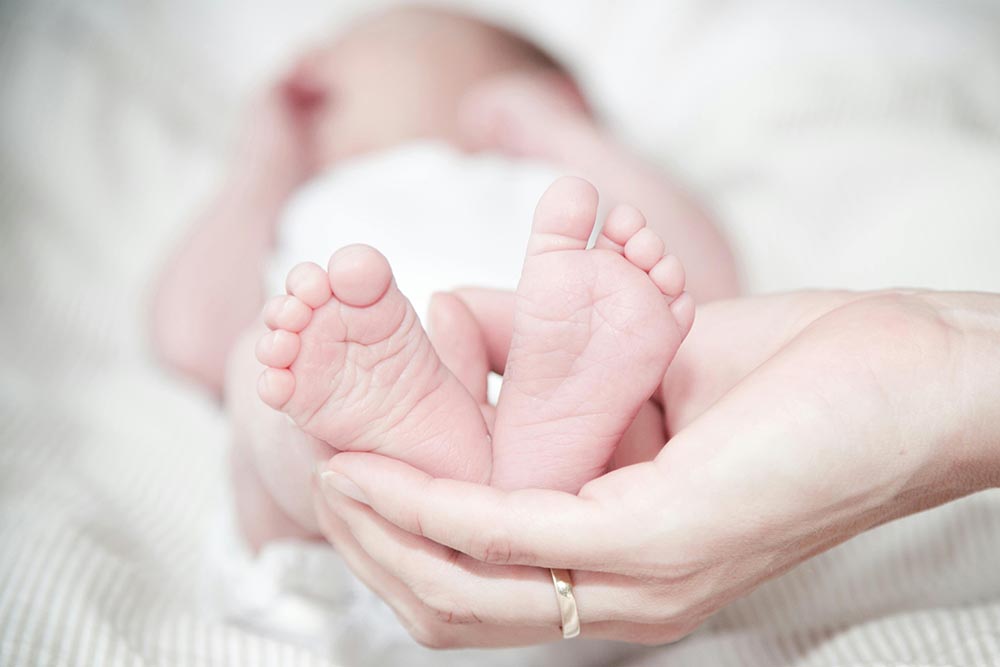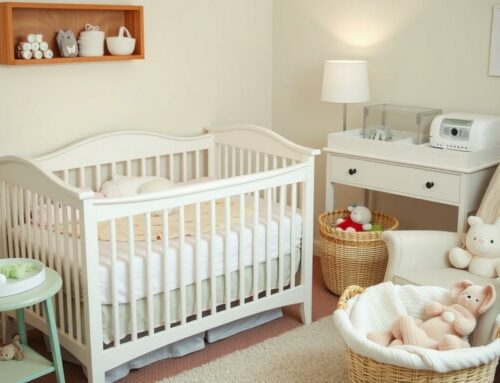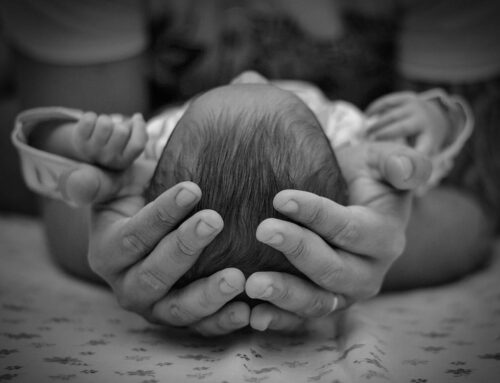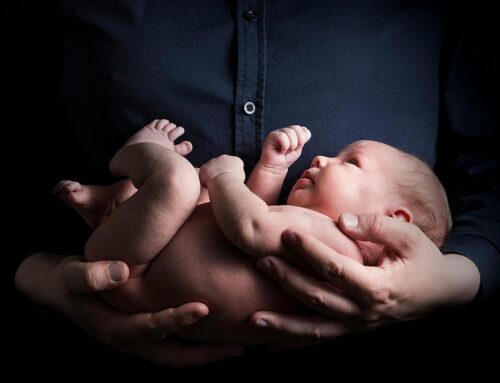1. Introduction
Imagine a check-up exclusively designed for your baby and their first days, weeks, and even months of life. If you’re a new mom, you already have an idea of what we’re talking about. This thorough examination is supervised by various healthcare professionals you trust, and it also gives you the chance to ask everything you want or need to know about your baby. There’s no need to feel like any question is too small or that you will be seen as a bad mom or dad if you ask too much. If you are worried about whether your baby is sleeping well, pooping and peeing accordingly, if their umbilical region is healing as it should, or if their hips are fine, just ask it all! After all, that’s what this check-up is all about: helping you understand your baby’s development and ensuring their physical fitness and health. Our goal with this article is to respond to the most frequent questions about newborn check-ups, also known as postnatal examinations, in different parts of the world. They’ll start making so much more sense.
1.1. Purpose of Newborn Checks
During the first few days of your baby’s life, they will undergo various checks that will help to ensure that they are well. Some of these checks are basic and painless, while others are a little more complex or can cause discomfort. All of them help health professionals to ensure that your baby is safe and well. The first check is carried out immediately after the birth while your new baby is being cleaned and checked by the delivery suite staff and before your baby leaves the delivery suite. This first check looks for immediate problems that might require treatment or further tests. These assessments are referred to as “routine”, as they are things that are done regularly for nearly all babies and have been designed to pick up as many babies as possible who might have problems. These problems might be serious and need immediate treatment, they might indicate that a baby is unwell and require further assessment or it might show potential problems that would require ongoing support or further tests. Every baby has these routine newborn checks.
The first few check-ups your baby has access to are really important. In the first few days of life, your baby will have a newborn check, which is carried out by one of the neonatal team on the delivery suite. This will be a thorough check of your baby to look for any issues that require quick treatment or further tests. The Betsi Cadwaladr University Health Board has a newsletter all about the different tests that are carried out on your baby in the first few weeks of life called the Newborn Bloodspot Screening Programme. The Neonatal Team will also be looking for any other issues and be checking that your baby is feeding and putting on weight. The care of you and your baby is important to us. Our postnatal ward staff are also here if you are worried about your baby and feel that they need more medical help.
2. When and Where to Schedule a Newborn Check
When you arrange your baby’s check, it is recommended that you make sure it will be with a GP who has already got to know you and your baby before, if this is possible. At the time of the check, make sure to ask the GP, health visitor, pediatrician or whoever is doing the check to explain what they are doing, and why. It doesn’t matter if at 6 weeks the check takes place a few days earlier than that actually – the timing is fairly flexible. It should take place somewhere between the first couple of days of life for a baby delivered at term, and the second week of life for a baby born prematurely.
You will be given the option to book in your baby’s newborn check before leaving the hospital or birthing unit, but you can also arrange it yourself with your GP once you get home. The check isn’t a medical necessity, but it offers the ideal opportunity for you to talk to a health professional about any concerns – no matter how minor – that you have about your baby’s health and well-being. If English isn’t your first language, or if you have a learning disability, hearing or visual problem, it’s also a good opportunity to arrange some extra support if you need it.
2.1. Timing of the Check
If your baby has to miss this check. Call your baby’s doctor and ask when you can reschedule the visit. Do not wait for your next regularly scheduled checkup to bring your baby in for their newborn check. As a busy pediatrician, you may have to wait a really long time (potentially days or even weeks) before the doctor is available to see your baby. So, call and reschedule right away!
Why it takes place so soon after coming home. This timing allows your doctor to check up on your baby and answer any questions you may have about feeding, sleeping, and general safety.
When this check happens. This check should happen during the first 10 to 14 days of your baby’s life. Most checkups are done in your pediatrician’s office, but sometimes a doctor will come to your house. Before you leave the hospital, ask the hospital staff if they will notify your doctor’s office and make an appointment for this check for you. If they do not do this, call your baby’s doctor in the first few days of being home to ask when they want to see your baby.
3. What to Expect During the Newborn Check
Some hospitals aim to get all the newborn babies seen at the baby’s bedside or the postnatal ward; other hospitals take babies to a specific room or area for the check. Timing and location will depend on your health board’s maternity services. Some places may have a policy of just your baby having the check, while others undertake the check with you present. The midwife present will be knowledgeable about the check, so feel free to ask any questions at any time during the check. Your newborn will sometimes have their heel pricked to collect a small amount of blood for a newborn blood spot screening test. This is important to help identify if your baby has a range of rare but serious health conditions.
The newborn check is your baby’s very first health check, carried out before you leave the hospital or your family midwife visits you at home. The check is there to find any immediate health issues that will affect your baby’s general health and wellbeing. It also helps to highlight any potential health problems your baby may need help with in the first few weeks. The check is a good starting point for any ongoing health and care your baby may need. During the check, your baby will have a thorough examination, usually in the first 72 hours of life. The sooner the better, so any issues can be spotted and dealt with quickly at this early stage in your baby’s life. The midwife or maternity unit will arrange your baby’s check-up.
3.1. Physical Examination
The newborn check can also include a bit of an eye test. The doctor might shine a light into your baby’s eyes to check they resist their pupils properly to the bright light. He or she will then further inspect the eyes using an ophthalmoscope – the same instrument your midwife used at home to check that your baby was in the right position to be born. At the end of the newborn check, your baby will be lifted up and straightened out to measure his or her length. You might notice that there are two little metal tags at the beginning of the cradle your baby is in. These aids help the doctor accurately measure the length of your baby by keeping his or her legs nice and straight. After the newborn check, your baby will be swaddled in a warm towel and weighed to check that they’re regaining the weight they lost during the first few days after birth.
Your baby will be stripped down to their nappy for a full assessment. They’ll be checked from top to toe and their ‘soft spots’ or fontanelles – the places on top of their head where the skull bones haven’t yet joined – will be looked at. All your baby’s babies are slightly different and it’s standard practice for new babies to be checked all over to make sure they’re healthy and that there’s no evidence of any problems from before or after they were born. While the doctor or nurse is carrying out the newborn check, they’ll also keep a record of your baby’s head circumference, length, and weight. Your baby’s weight will be measured at every appointment for the first month, and then again at regular appointments right through childhood. These measurements will all be put onto a little chart called a growth chart and will be plotted on it afterwards.
4. Common Concerns Addressed During the Newborn Check
Why does my baby look jaundiced? Jaundice occurs to some extent in most babies. This sometimes happens when the newborn’s liver is still immature and cannot effectively remove bilirubin (a waste product formed in high amounts during the quick breakdown of the baby’s red blood cells usually occurring within the first few days of life). Generally speaking, jaundiced skin may start at the face the second or third day of the baby’s life, and it will quickly become more noticeable as jaundice descends the body, reaching peak concentration after approximately three days. The following then takes place: Conjunctivae (whites of the eyes), mucus membranes, and pale-colored areas of the body are uniformly colored. Jaundice is usually gone within 14 days.
The following is a list of four of the most common questions normally addressed during a newborn check. Treatment is always within the context of the individual patient. Therefore, these answers are intended as a general guide and are not comprehensive. It is important to consult with a healthcare professional to ensure that the diagnosis and course of treatment you choose are right for you or your baby’s individual needs.
4.1. Feeding and Sleep Patterns
Some babies have a more disorganized eating schedule and may even spit up after they eat, especially if they are laid down too soon after feeding. These babies may benefit from the “Tilt Feedings”: you can hold baby in an upright position and then “tip” them 45 degrees to slow down the flow of the formula or breast milk to prevent spit up and reflux. In general, in newborns frequent feeding and weight gain are more important than the duration of each feeding, as their tummies are tiny. At the time of their birth, most newborns sleep around 16 hours a day, only waking up to eat. These small spurts of wake time tire them out, and most newborns sleep for 1-2 hours from the end of one feeding until the beginning of the next, day and night. Although many parents assume that breastfed babies wake more often than formula-fed babies, this isn’t necessarily true – most breastfed newborns are capable of sleeping long stretches at night and many immediately drop right back to sleep after they are fed if you don’t wake them during changes.
What feeding and sleep patterns should I expect in my newborn? Most newborns need to be fed every 2-4 hours around the clock, though some are not good at waking up for feedings until they have regained their birth weight. They usually “organize” and follow a set schedule once this milestone is reached. Breastfed babies usually eat more often than formula-fed babies because breast milk is digested more quickly; breastfeeding mothers often nurse for 10-15 minutes on each side every 2-3 hours. Formula-fed newborns can usually eat 2-3 ounces of formula every 3-4 hours in the first few weeks.
5. Additional Tests and Screenings
I am OK about the physical examination, but can my baby not have the heel-prick test? Although you have the choice about where the heel-prick test is carried out, there is good evidence that all newborns should receive this simple test. It is important as it detects a wide variety of rare but serious (unwell) conditions, which, in a small number of babies, can be present at birth or appear in the first few days of life. Early detection allows prompt treatment which will prevent a serious outcome.
Can my baby have any additional tests or screenings? Not only is your baby having a physical examination, a number of important tests and screenings might take place. You should have previously been given information about the heel-prick test which takes place at 5 days old and the Newborn Hearing Screen which will be carried out. These identify babies who may have some type of health problem but are well. There is often also a urine test which is carried out at home and some areas may offer additional testing.
There are many additional questions that parents have about their newborn baby’s check at 6-8 weeks old. Some of them are discussed below, but always feel free to ask any further questions of your doctor.
5.1. Hearing and Vision Tests
Initially, when a baby does not return a pass result, there is no need for parents to worry too much. This is because the hearing of some babies may not be established at the time of screening. In almost all cases, when a baby is re-screened they will pass the screen. Only around two in every hundred babies screened in Queensland need further audiological testing. Eyesight helps the baby to develop mentally, physically and socially. Good eyesight is important from an early stage in a baby’s life. When you attend the hearing screen, please also take the opportunity to think about your baby’s eyes and reflexes with one of the maternity healthcare team. This will involve a quick and easy process which will not require us to touch your baby’s eyes, but it is an important test.
Soon after your baby’s birth, they will have a screening test to check their hearing. The aim of the Newborn Hearing Screening Program, like all screening programs, is to assess babies so that any problems can be picked up at an early stage. This means that the baby and their family can be seen by the right person at the right time. We know that the early months of a baby’s life are very important in their development and that any difficulties with hearing need to be identified and helped as soon as possible. The baby’s hearing in these first few months of life can be improved through early help. Over 1 in 1000 babies are born with hearing loss. As you can see, this is much more common than other conditions we screen for in babies such as cystic fibrosis or phenylketonuria. Following our screen, many babies will return accurate results with an automated otoacoustic emission (AOAE) hearing screener.
Want to explore further? Visit us for more insights!
References:
Liddle, Karen, et al. Aetiology of permanent childhood hearing loss at a population level.” Journal of Paediatrics and Child Health 58.3 (2022): 440-447. uq.edu.au
Collins, Alison, et al. “Otolaryngology outcomes of infants with conductive hearing loss identified through universal newborn hearing screening.” International Journal of Pediatric Otorhinolaryngology (2024): 111970. sciencedirect.com
Collins, Alison, et al. “Conductive hearing loss in newborns: Hearing profile, risk factors, and occasions of service.” International Journal of Pediatric Otorhinolaryngology 171 (2023): 111630. [HTML]
Collins, Alison, et al. “Clinical characteristics of infants identified with a conductive hearing loss through universal newborn hearing screening: A population-based sample.” International Journal of Pediatric Otorhinolaryngology 161 (2022): 111268. [HTML]
Fitzgibbons, E. Jane, et al. “Childhood hearing loss detected beyond the newborn screen.” International Journal of Audiology 62.3 (2023): 278-285. [HTML]
Horn, Philippa, et al. “Detecting hearing loss in infants with a syndrome or craniofacial abnormalities following the newborn hearing screen.” Journal of Speech, Language, and Hearing Research 64.9 (2021): 3594-3602. [HTML]
Ching, Teresa YC, et al. “Audiologists’ perspectives on management of mild bilateral hearing loss in infants and young children.” International Journal of Audiology 61.9 (2022): 752-760. mq.edu.au
St John, Miya, et al. “Predicting speech‐sound disorder outcomes in school‐age children with hearing loss: The VicCHILD experience.” International Journal of Language & Communication Disorders 55.4 (2020): 537-546. [HTML]
Beswick, Rachael, Lauren McHugh, and Julia E. Clark. “Integrating congenital cytomegalovirus screening within a newborn hearing screening program: Is it worthwhile?.” International Journal of Pediatric Otorhinolaryngology 142 (2021): 110594. uq.edu.au
Sharma, Rajan, et al. “An economic evaluation of Australia’s Newborn hearing screening program: A within-study cost-effectiveness analysis.” Ear and hearing 43.3 (2022): 972-983. nih.gov
Keywords: baby’s newborn check questions, essential newborn check-up information, questions for pediatrician, newborn health concerns, baby wellness check details, first doctor visit queries, newborn check-up FAQ, infant health screening questions, key newborn check topics, what to ask during baby’s check-up.






